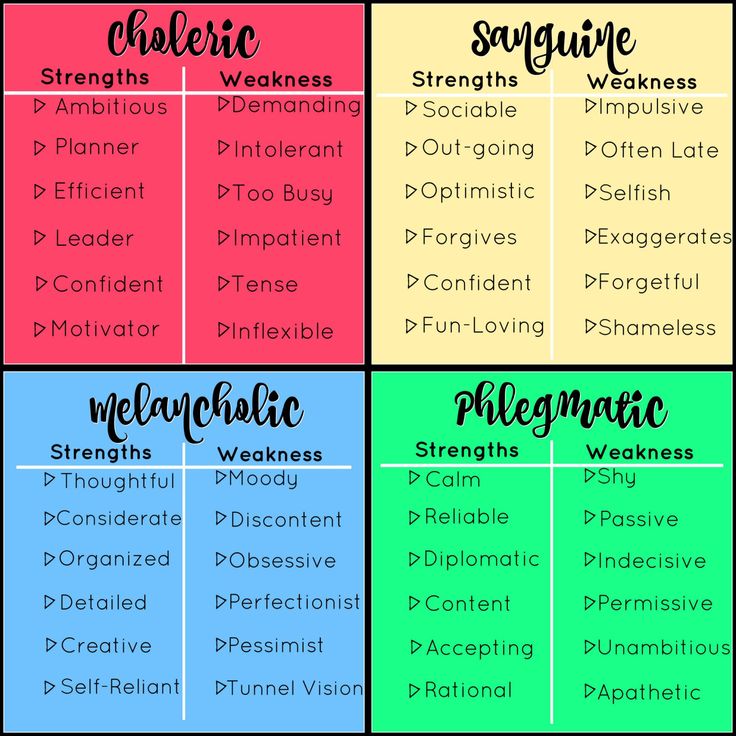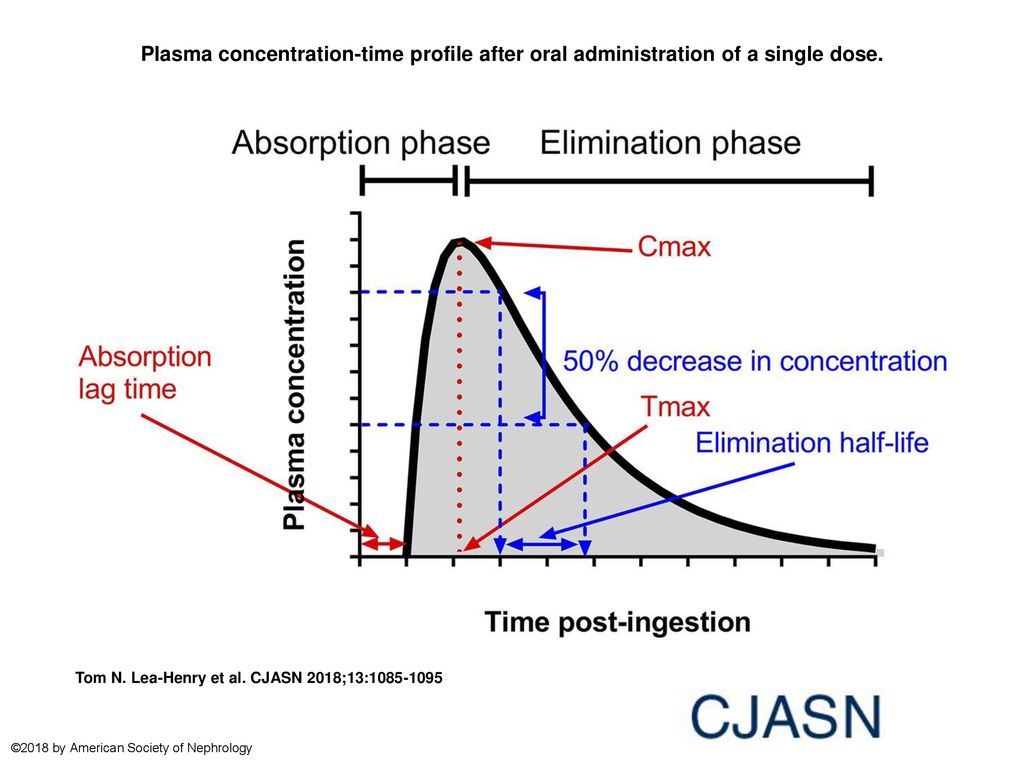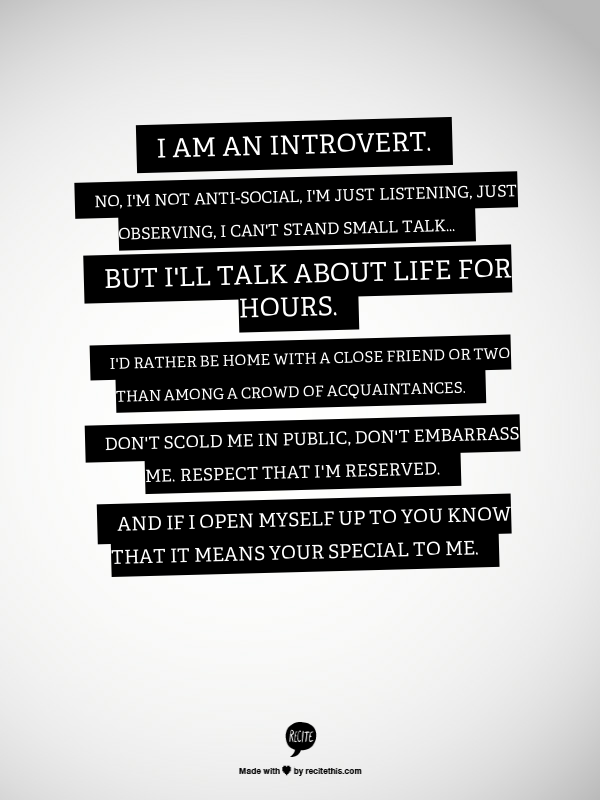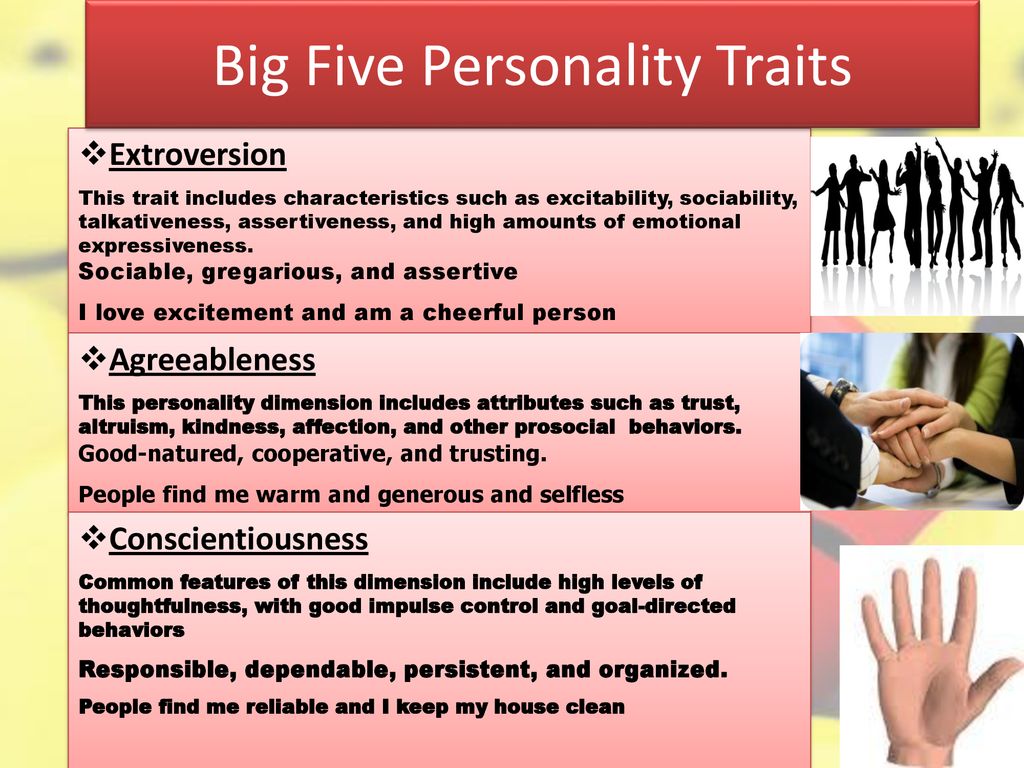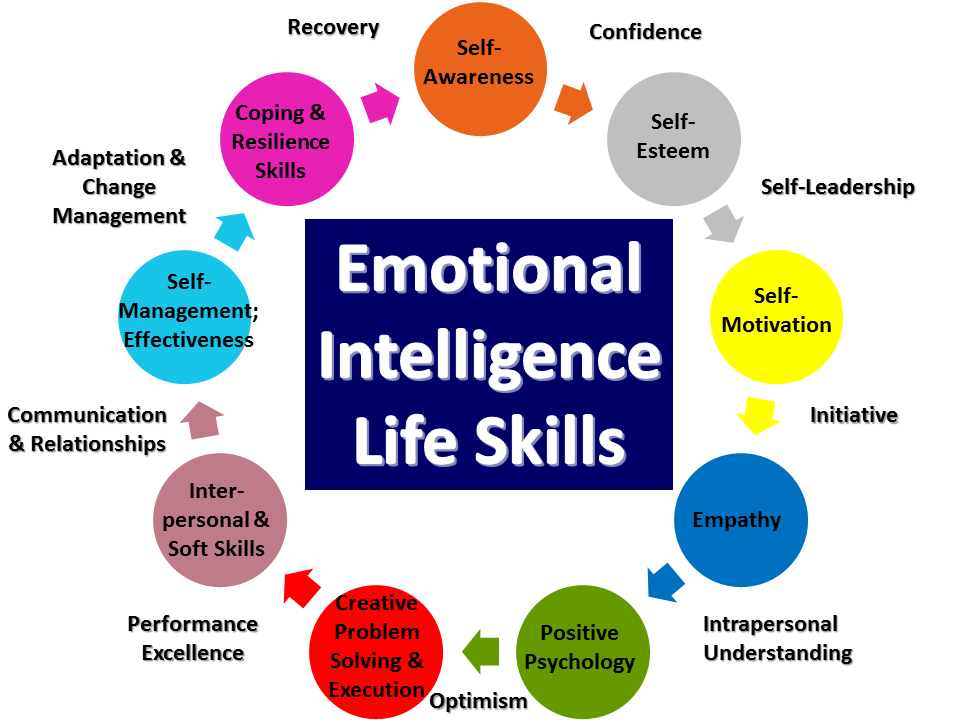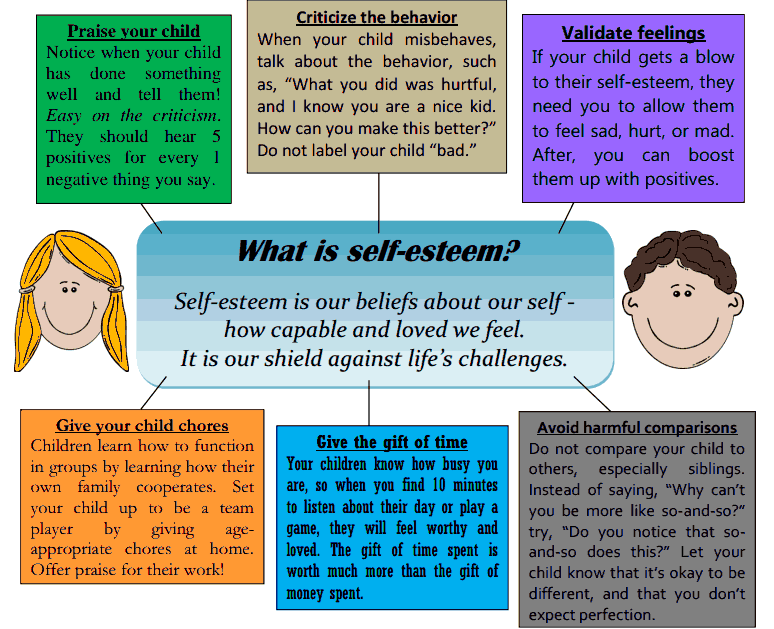The 4 different types of personalities
Understanding the 4 Personality Types: A, B, C, and D
Each person is a unique combination of four personality types. Over the centuries, these basic categories have gone by several names and designations, but for our purposes, they're known as the director, the socializer, the thinker, and the supporter. As shorthand, though, we refer to those types of personality as A, B, C, and D, respectively.
Learning how to identify people by personality type can bring a higher level of understanding to interpersonal relationships and team building, especially for employers looking for ways to avoid bad hires and reduce turnover. Indeed, a good personality test may be the most valuable tool in a hiring manager's toolbox.
Table of Contents:
- Type A personality
- Type A vs. Type B personality
- Type B personality
- Type C personality
- Type D personality
- Type X personality
- Other personality types and theories
Try our personality test free
What is a Type A personality?
A Type A personality likes to be in control of their environment and their lives. They're normally not very detail-oriented, choosing to delegate details to others. They're usually very goal-oriented and practical in their solutions. They arrive at solutions and goals with a no-nonsense, bottom-line approach.
Type A personality characteristics
While some Type A personality traits vary from person to person, certain traits are common. The best example of a Type A personality is someone who is:
- Take-charge and highly competitive
- Fast-paced and impatient
- Entrepreneurial, workaholic
- Embraces change
- Ambitious
- Works well independently
- Passionate but short-fused
- Demands maximum freedom
- Dominant and stubborn
- Multitasking
What are other names for the Type A personality?
Here are some other names for and best examples of Type A personalities.
| Personality Tests & Approaches | Type A Personality Name |
|---|---|
| The Hire Success® System | Director |
| Hippocrates | Choleric (bodily humor: yellow bile) |
| Plato | Guardian |
| Jung | Sensor |
| DISC | D; Direct/Controlling |
| Insight | Blue |
| Myers-Briggs | ESTJ, ENTJ, ENFP |
| Enneagram | Adventurer/Achiever |
| PSI | Controller |
| Biblical character | Paul |
| Cartoon/comic characters | Lucy (from Peanuts) / Rabbit (from Winnie the Pooh) |
How to test Type A personality
A Hire Success® Type A personality test assesses behavioral characteristics. You'll get an idea of how well positive aspects like drive, perfectionism and ability to work independently balance negatives like impatience, hostility and low empathy. The test is quick, easy and even fun for employees-and gives you valuable hiring and managing insights.
You'll get an idea of how well positive aspects like drive, perfectionism and ability to work independently balance negatives like impatience, hostility and low empathy. The test is quick, easy and even fun for employees-and gives you valuable hiring and managing insights.
Try Free Book demo
Type A personality at work
When it comes to work personality types, employees with Type A personalities can typically be identified by the following traits:
- Goal-oriented
- Risk-taking
- Good under stress
- Works well independently
- Direct management style
- Good delegation skills
- Good administrative skills
- Workaholic
Type A personalities don't like a lot of restraints or restrictions placed on them. Instead, they prefer to work independently and set their own schedules. Since they tend to be workaholics, it's not unusual to see them put in whatever time and effort it takes to accomplish their goals.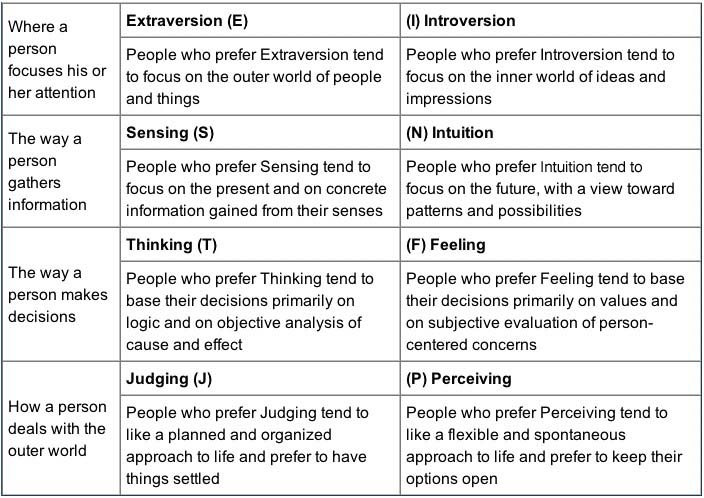 They may seem impatient at times, especially if they believe someone is spending too much time going over details with them or impeding their stride.
They may seem impatient at times, especially if they believe someone is spending too much time going over details with them or impeding their stride.
Don't be surprised to see this personality type in a supervisory position or management. Having an entrepreneurial streak, they may be a business owner or strive to own their own business someday. Type A personalities are confident and not easily discouraged.
Pros and cons of hiring Type A personality
If a Type A personality sees their day-to-day job as routine or repetitive, they'll get bored easily and won't enjoy the work. They'll want others to view them as tough in these situations, but internally they may be miserable if the job is too routine. Dominant in nature, Type A personalities will do whatever is necessary to prevent themselves from falling into patterns or routines and seek freedom instead. They'll also be very dissatisfied if they believe someone is trying to manipulate them.
A Type A personality may not be very good at recognizing coworker's feelings and needs.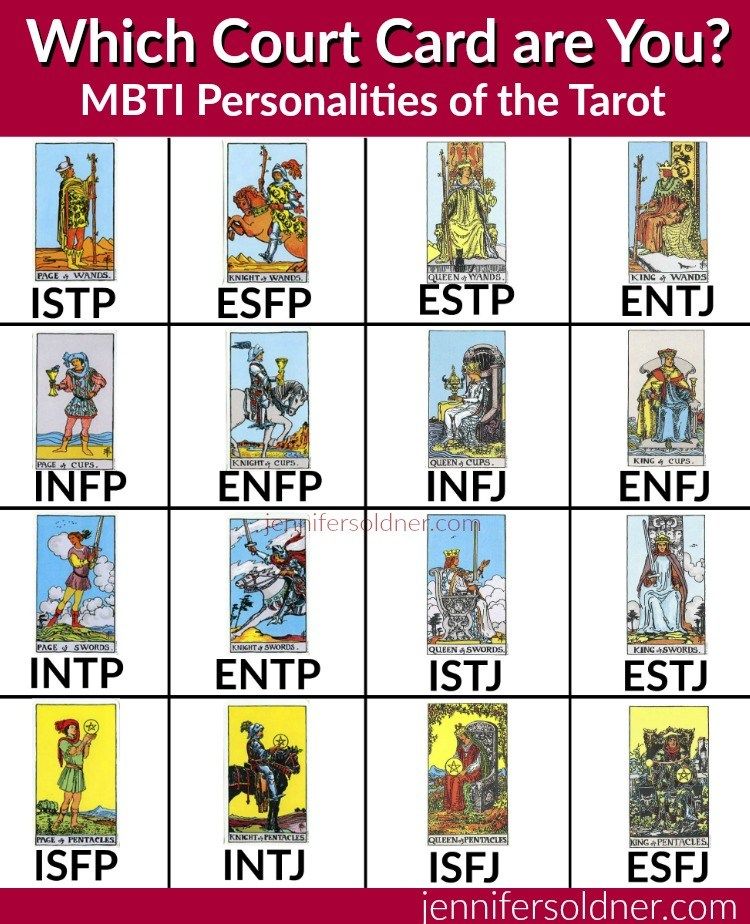 They're extremely focused on achieving their goals and may not notice. If you're looking for someone who works well under pressure and seems to excel in high-stress situations, the Type A personality is the best pick.
They're extremely focused on achieving their goals and may not notice. If you're looking for someone who works well under pressure and seems to excel in high-stress situations, the Type A personality is the best pick.
How to deal with Type A personality at work
Managing employees with type A personality traits at work is a balance. They can be valuable in terms of problem solving and productivity, but when unmanaged, can be disruptive. Managing motivations and situations is the key.
What motivates a Type A personality?
- Money
- Opportunity
- Freedom
- Favorable risk-reward ratio
- Challenges
- Urgency
- Success
- Leadership
What are some common words or phrases that motivate or grab the attention of the Type A personality?
- "Let's get it done."
- Fast
- Results
- Immediate/today/now
- The bottom line
- "What do you think about ___?"
- "The best (newest, cutting-edge, etc.
 )"
)" - Take the challenge
- Great return on investment
What are the turnoffs, dislikes, and fears of the Type A personality?
- Touchy-feely things
- Long explanations or descriptions
- Explaining things in emotional terms or more than once to the same person
- Looking vulnerable
- Falling into routines
- Being manipulated
- Losing
Which jobs attract a Type A personality?
The best careers for Type A personality include:
- President/CEO
- General contractor
- Salesperson or sales manager
- Business owner
- Politician
- Entrepreneur
- Police/military officer
- Manager
- Executive
Back to Top
Type A vs. Type B personality
Having a mix of personalities on your team and ensuring that they mesh will help your department or company truly excel. Understanding a Type A vs. Type B personality will help you get the balance right between these two working styles.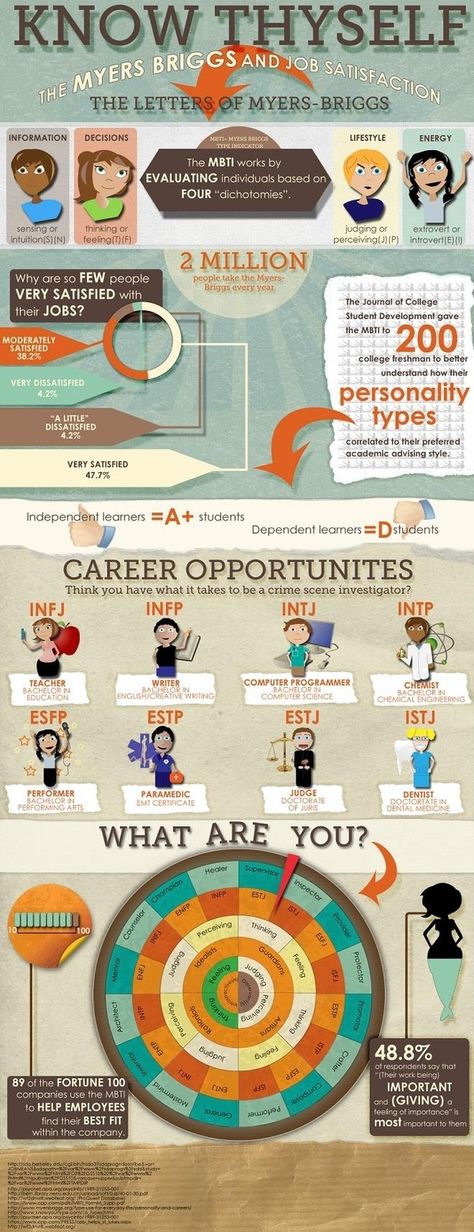
Pair goal-oriented, future-thinking Type A people with agreeable and present-focused Type Bs.
Controlling Type As can be complimented by Type Bs who work on forging strong relationships.
Self-motivated Type As can keep Type Bs, who are driven by others on the team, focused in the right direction.
It helps to understand both personality types when balancing out teams. Here is a deep dive into what a Type B personality is.
What is a Type B personality?
The Type B personality is a very outgoing, energetic and fast-paced individual who likes to be around people and enjoys being the center of attention. They're good relationship-builders and most people like them right away. Their driving need is for approval, so they try to like everyone in hopes everyone will like them, too. Compliments, acknowledgement of their achievements, words of admiration, and even applause from these groups are the most important thing you can do for them.
Type B personality traits
Like Type A personalities, Type B personality characteristics can also vary by individual.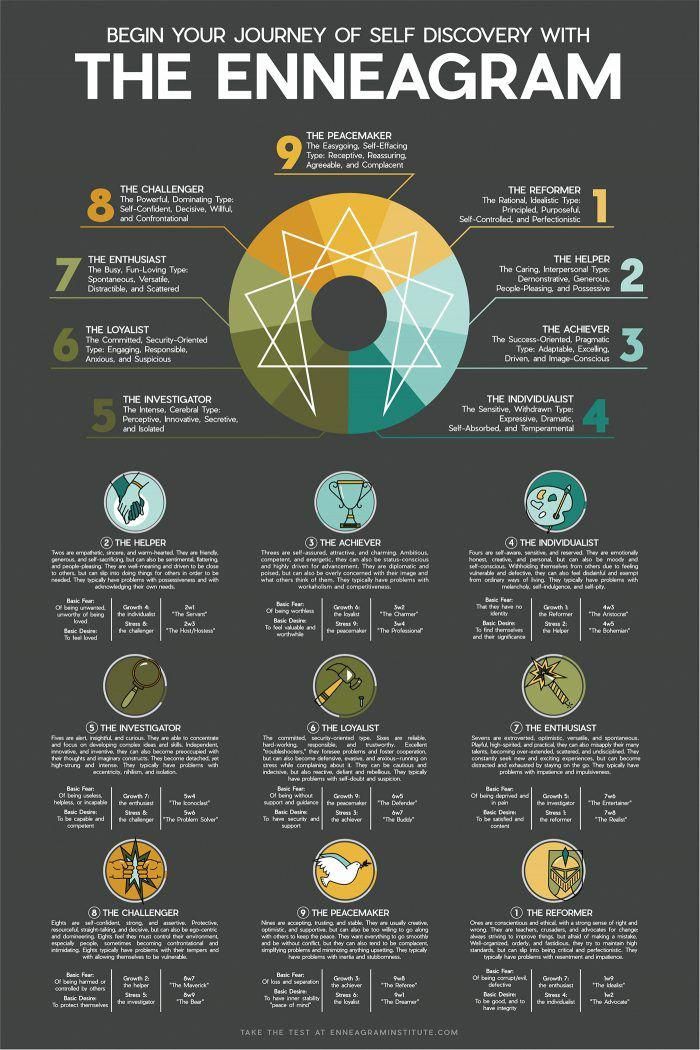 The best example of Type B personality is someone who is:
The best example of Type B personality is someone who is:
- Enthusiastic and fun-loving
- Persuasive
- Friendly
- Charismatic and confident
- Idea person, dreamer
- Short attention span
- Motivator
- Spontaneous and impulsive
- Procrastinator
What are other names for the Type B personality?
| Personality Tests & Approaches | Type B Personality Name |
|---|---|
| The Hire Success® System | Socializer |
| Hippocrates | Sanguine (bodily humor: blood) |
| Plato | Artisan |
| Jung | Intuitor |
| DISC | I; direct/supporting |
| Insight | Green |
| Myers-Briggs | ENTJ, ENTP, INTJ, INTP |
| Enneagram | Helper/romantic |
| PSI | Promoter |
| Biblical character | Peter |
| Cartoon/comic characters | Snoopy (from Peanuts) / Tigger (from Winnie the Pooh) |
How to test Type B personality
The Hire Success® Type B personality test helps you assess how a given person will fit within your culture and teams.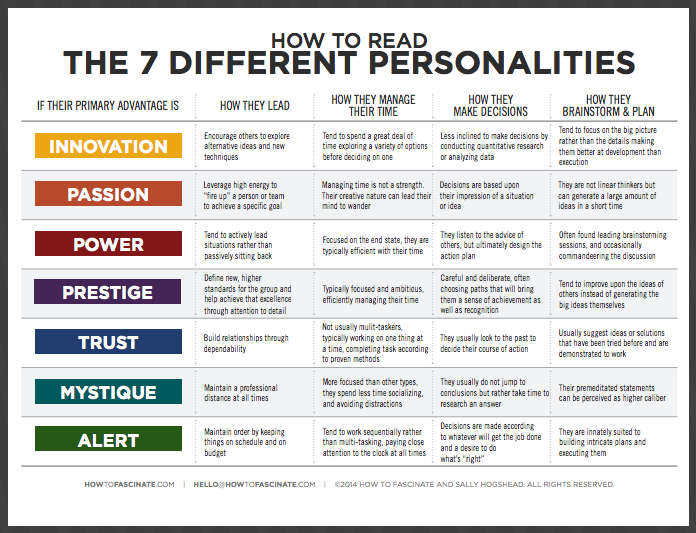 While you may make you feel comfortable surrounding yourself with people like you, it's better to have a good balance of personalities on your team.
While you may make you feel comfortable surrounding yourself with people like you, it's better to have a good balance of personalities on your team.
This test lets you find Type B personality traits like being easy-going, optimistic, creative and a team player with weaknesses like being impulsive, needy of validation, and procrastinating. The test is easy and gives you valuable insights for hiring and managing potential team members.
Try Free Book demo
Type B personality at work
Employees with Type B personalities can typically be identified by the following traits:
- Relationship-oriented
- Outgoing
- Enthusiastic
- Doesn't finish what was started
- May try to do too much at once
- Easily bored
- Easily liked by most people
Type B personalities love to talk about themselves. Some may view that as self-centered, but a Type B's real motivation is to be liked. For an extreme example, Bette Midler in the movie Beaches invited an old friend up to see her lavish apartment and told her about her great success.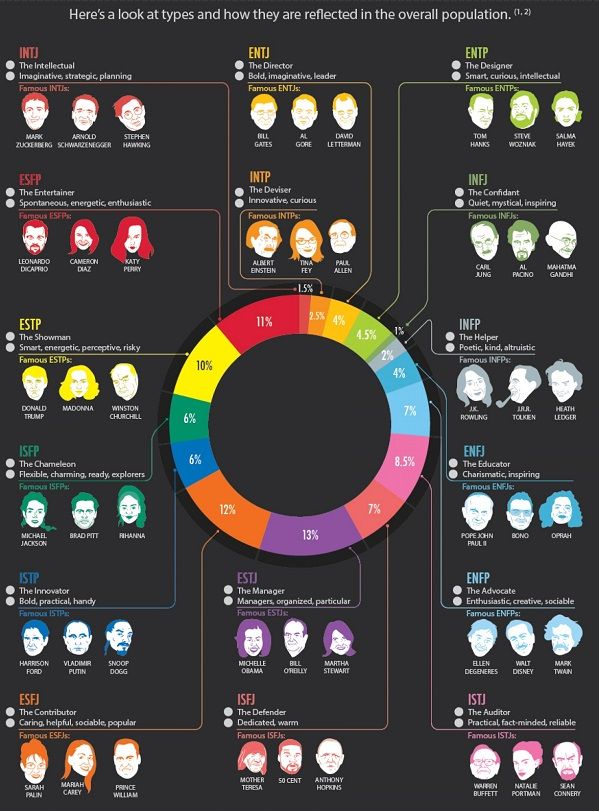 She said to the friend: "Enough about me. Let's talk about you. So, what do you think of me?"
She said to the friend: "Enough about me. Let's talk about you. So, what do you think of me?"
The Type B personality's biggest fear is being humiliated in public, since that might make many people disapprove of them. It could be traumatic for them. The B personality doesn't want to appear unattractive or unsuccessful either, so they'll hide any weakness.
Pros and cons of hiring Type B personality
Some of the strengths you can count on from the Type B personality are their enthusiasm, outgoing behavior, friendliness, and their ability to persuade even the most skeptical of people. They tend to be dreamers and can often turn those dreams into very practical ideas in the workplace. Type B personalities are spontaneous and use their quick wit and humor to make people like them. They aren't very good about hiding their own feelings either, so if they're hurt or disappointed, you'll probably be able to read it in their mannerisms and overall disposition.
Some of the natural weaknesses associated with the Type B personality include being impatience, a short attention span, and not being very detail-oriented. In business, Type B personalities may tend to over-socialize and not spend as much time doing their work because they strive for social interaction. During the hiring process, they may be inclined toward unstructured, rambling interviews rather than structured ones, and bad interviews can lead to bad hires. Despite their natural tendency, many Type B personalities have learned to keep their counterproductive impulses in check while benefiting from the positives.
In business, Type B personalities may tend to over-socialize and not spend as much time doing their work because they strive for social interaction. During the hiring process, they may be inclined toward unstructured, rambling interviews rather than structured ones, and bad interviews can lead to bad hires. Despite their natural tendency, many Type B personalities have learned to keep their counterproductive impulses in check while benefiting from the positives.
How to deal with Type B personality at work
Put Type B people on teams and spend time working with them directly. Avoid putting them in a solitary position with little interaction because they're most effective in collaborative situations. They're also ideal for positions where they must interact with customers or suppliers and thrive in social settings.
What motivates a Type B personality?
- Public recognition
- Awards, plaques, certificates
- Having picture taken with celebrities
- Succeeding, especially beyond peers
- Being the center of attention, public speaker, director, etc.
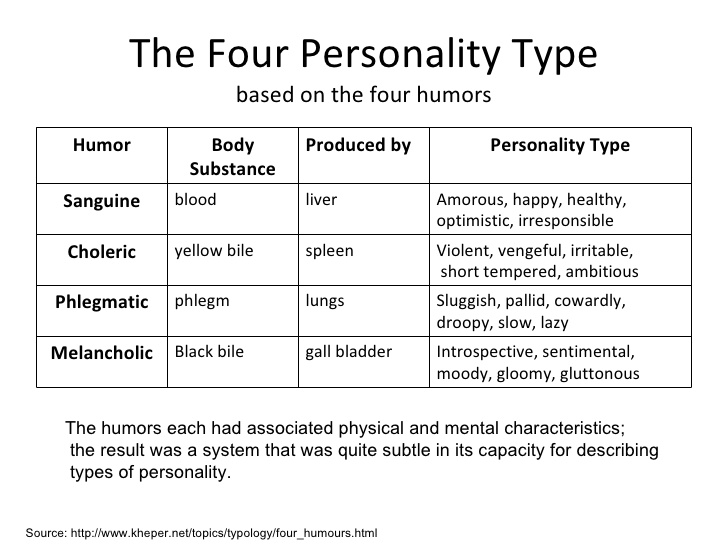
- Acceptance
- The latest styles and/or trends
What are some common words or phrases that motivate or grab the attention of the Type B personality?
- "You look great."
- "You're the best ____."
- "People love you."
- "This will be fun."
- Entertaining
What are the turnoffs, dislikes, and fears of the Type B personality?
- Public humiliation
- Being unappreciated
- Appearing uninvolved
- Nonsocial types
- Appearing unattractive
- People and things that distract attention
- Appearing unsuccessful
- Appearing unacceptable
The best careers for Type B personality include:
- Public relations
- Salesperson
- Entertainment
- Personnel interviewer
- Professional host(ess)
- Politician
- Recreation director
- Party planner
- Customer service/relations
Back to Top
What is a Type C personality?
The Type C personality is a very detail-oriented individual who likes to be involved in things that are controlled and stable. They're interested in accuracy, rationality, and logic. People who can't seem to control their emotions will bother them because Type C personalities believe being emotional makes objectivity difficult. They also dislike being around people who are full of hype, since they desire facts, accuracy and logic. Other people's emotions may not be a priority for them, as they tend to strive for the facts and let the chips fall where they may.
They're interested in accuracy, rationality, and logic. People who can't seem to control their emotions will bother them because Type C personalities believe being emotional makes objectivity difficult. They also dislike being around people who are full of hype, since they desire facts, accuracy and logic. Other people's emotions may not be a priority for them, as they tend to strive for the facts and let the chips fall where they may.
Type C personality characteristics
Type C personalities come with considerable variations, however, the best example of a Type C personality is someone who is:
- Accuracy and detail-oriented
- Creative
- Dependable
- Skeptical
- Independent and can appear anti-social
- Lawful
- Organized
- Analytical and critical
- Worried about progress
- Detached and disengaged
What are other names for the Type C personality?
| Personality Tests & Approaches | Type C Personality Name |
|---|---|
| The Hire Success® System | Thinker |
| Hippocrates | Melancholic (bodily humor: black bile) |
| Plato | Scientist |
| Jung | Thinker |
| DISC | C; indirect/controlling |
| Insight | Gold |
| Myers-Briggs | ESTJ, ESFJ, ISTJ, ISFJ |
| Enneagram | Asserter/perfectionist |
| PSI | Analyst |
| Biblical character | Moses |
| Cartoon/comic characters | Linus (from Peanuts) / Eeyore (from Winnie the Pooh) |
How to test Type C personality
The Hire Success® Type C personality test helps you find people with traits in this cluster.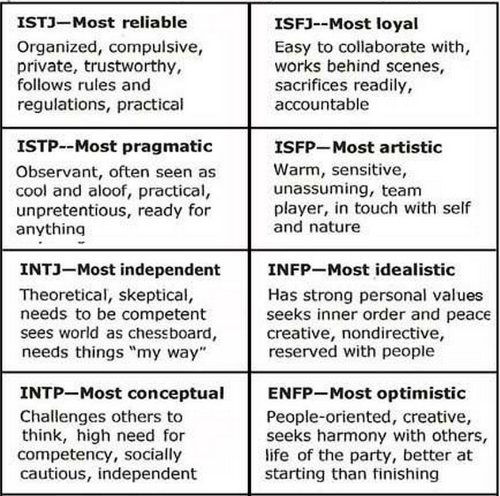 You will be able to quickly assess the positives, like detail-oriented focus, ability to work alone, troubleshooting and planning skills. You will be able to manage the negatives like social inhibition, conflict avoidance and anxiety.
You will be able to quickly assess the positives, like detail-oriented focus, ability to work alone, troubleshooting and planning skills. You will be able to manage the negatives like social inhibition, conflict avoidance and anxiety.
Try Free Book demo
Type C personality at work
People with Type C personalities can typically be identified by the following traits:
- Detail-oriented
- Logical
- Prepared
- Likes to do things their own way
- Worry about progress
- May never have personal expectations met
- Quality control
Type C personalities tend to be quite controlling, both of themselves and others. They don't like things to get out of hand and may appear stoic because they don't really want themselves to display a lot of emotion. They're very outcome-driven and will be sticklers for following protocol.
They're careful, resourceful, and, above all, excellent thinkers who will look at all aspects of an issue before taking a stand. Once they take a stand on an issue, though, they'll have the facts to back it up, so anyone who challenges them better be prepared. If you have a Type C personality on your job candidate shortlist, you'll want to prepare some thoughtful interview questions if you don't want a carefully rehearsed response.
Once they take a stand on an issue, though, they'll have the facts to back it up, so anyone who challenges them better be prepared. If you have a Type C personality on your job candidate shortlist, you'll want to prepare some thoughtful interview questions if you don't want a carefully rehearsed response.
Pros and cons of hiring Type C personality
Type C personalities like their jobs to be clearly defined and want to know their expectations. Knowing those facts, they will be able to prioritize their tasks and see them through to completion.
In managerial roles, they're cautious and logical and require many details and facts before they make a decision. People who try to sell them something with emotion usually fail. The Type C personality would consider such an effort to be hype and would wonder what facts the other person is trying to hide.
In more public roles, Type C personalities will strive for originality, cleverness and uniqueness in all things. Because of their detailed orientation, they're meticulously prepared to defend their decisions against any possible objections.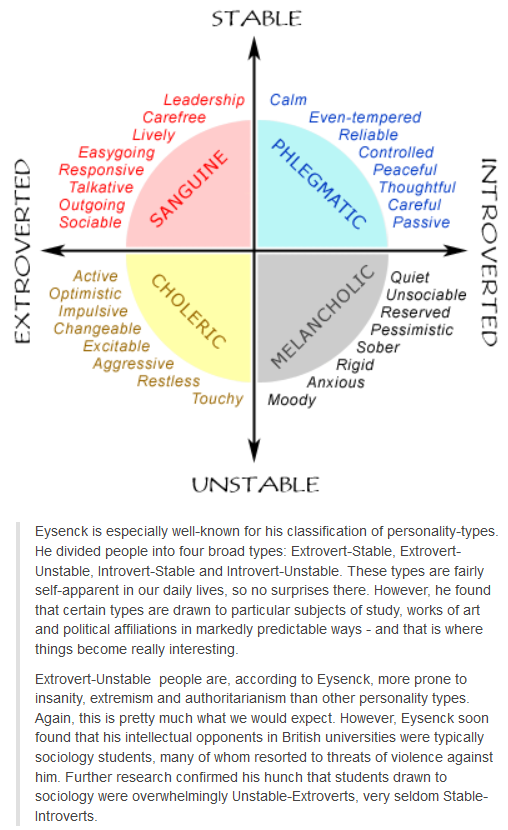 Many accountants and lawyers are Type C personalities. They're excellent for any job that requires creative thinking based on patience, facts and accuracy.
Many accountants and lawyers are Type C personalities. They're excellent for any job that requires creative thinking based on patience, facts and accuracy.
How to deal with Type C personality at work
Those with Type C personality traits can play valuable roles on your team. They're motivated to handle important tasks that require determination and an eye for detail. They're less comfortable in leadership positions and prefer to work alone.
What motivates a Type C personality?
- Control
- Opportunities to be independent and analytical
- Challenges
- Problem-solving
What are some common words or phrases that motivate or grab the attention of the Type C personality?
- Perfection
- "How does that work?"
- Quiet, solitude
- "Tell me more about ____."
What are the turnoffs, dislikes, and fears of the Type C personality?
- Uncontrolled emotions
- Irrational acts
- Indecision
- People who are self-centered, or self-aggrandizement
- Loss of control
- Being subject to control or supervision by people they don't trust or respect
- Distractions or distracting people
Which jobs attract a Type C personality?
The best careers for Type C personality include:
- Forecaster
- Troubleshooter
- Critic
- Investigator (police, crime scene, private, etc.
 )
) - Engineer
- Technical support
- Research scientist
- Game designer
- Data analyst
- Pilot
- Programmer/analyst
- Artist
- Actuary
- Musician
- Accountant/auditor
- Inventor
Back to Top
What is a Type D personality?
A Type D personality takes a slower, easier pace toward their work and life in general. They seek security and longevity on the job and are very happy doing a repetitive task day in and day out. The repetition allows them to become very skilled. Likewise, they won't like it if the rules change a lot. That's contrary to their desire to minimize change and stick with what they know works. For the Type D personality, even though the current way may be unpleasant, they worry that the unknown may be even worse.
Type D personality traits
As with the previous personalities, you'll find plenty of variation with Type D people. The best example of a Type D personality is someone who is:
- Shy, low-key and observant
- Caring
- Sincere
- Consistent, dependable
- Calm and stable
- Fair and equitable
- Looks approachable
- Avoiding confrontation
- Resistant to change
- Self-confident
What are other names for the Type D personality?
| Personality Tests & Approaches | Type D Personality Name |
|---|---|
| The Hire Success® System | Supporter |
| Hippocrates | Phlegmatic (bodily humor: phlegm) |
| Plato | Philosopher |
| Jung | Feeler |
| DISC | S; indirect/supporting |
| Insight | Orange |
| Myers-Briggs | ESTP, ESFP, ISTP, ISFP |
| Enneagram | Peacemaker/observer |
| PSI | Supporter |
| Biblical character | Abraham |
| Cartoon/comic characters | Charlie Brown (from Peanuts) / Winnie the Pooh |
How to test Type D personality
Because Type D personalities are anything but easy going, finding out what makes them tick can help you get the most from hiring this type.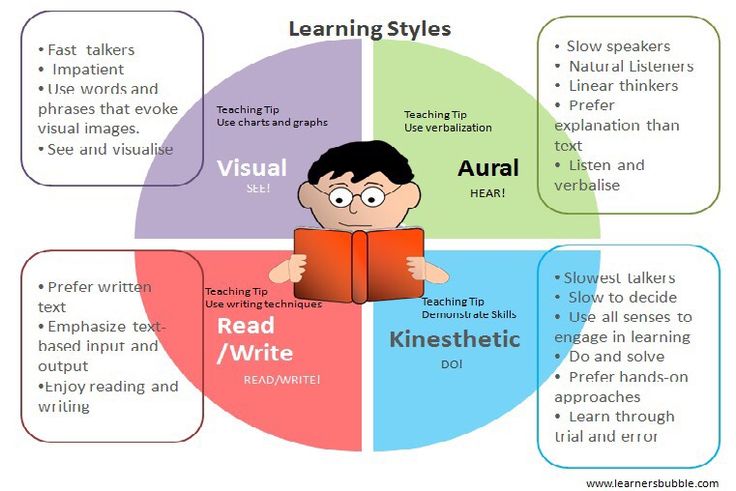 While they're highly trustworthy, compassionate, and deep thinkers, they can suffer from low self-confidence and pessimism. The Hire Success® Type D personality test will help you find the right place for them on your team.
While they're highly trustworthy, compassionate, and deep thinkers, they can suffer from low self-confidence and pessimism. The Hire Success® Type D personality test will help you find the right place for them on your team.
Try Free Book demo
Type D personality at work
People with Type D personalities can typically be identified by the following traits:
- Task-oriented
- Stabilizing
- Cautious
- Going along when they don't agree
- Easily used by others
- Uncomfortable with constant change
- Good at routines or repetitive tasks
They seek the respect, sincere admiration, and acceptance of others. The Type D personality will gladly work hard to please the people they work for as long as they feel appreciated and receive plenty of reassurance that they're needed. They need that sense of security. Type D personalities often think the Type A personality is crazy for taking so many risks and not showing much concern for security and longevity.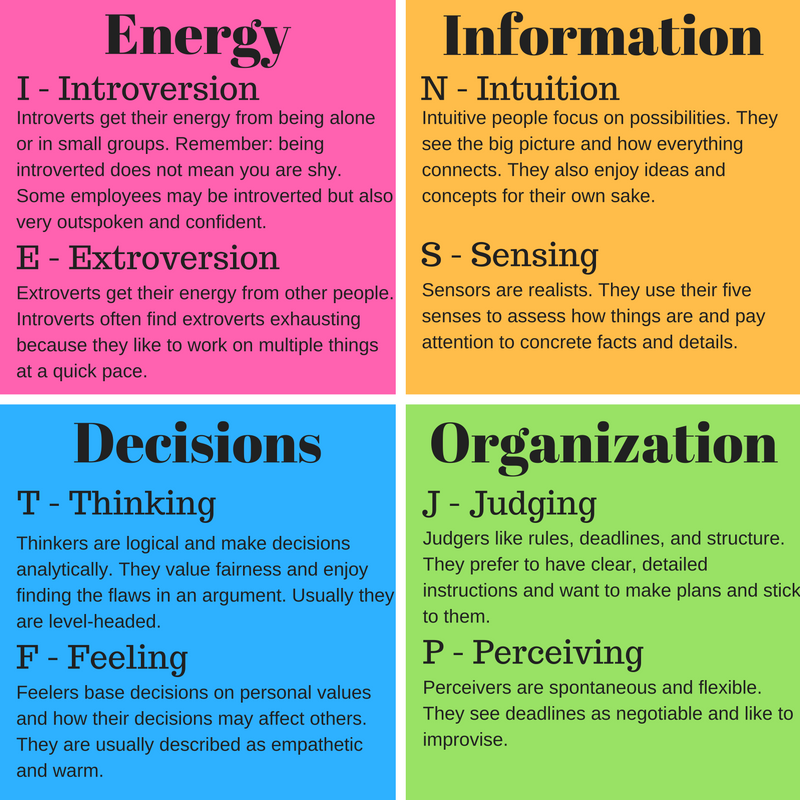
Pros and cons of hiring Type D personality
People with Type D personality traits are usually very organized; being around a messy environment or disorganization will bother them. They're also good at playing a very supportive role with others and are normally very caring, thoughtful, and compassionate. They're patient, tend to be good listeners and will persevere when all others have given up. A stabilizing force, they especially like working in a group or on a team.
Although they may not be as fast as others, they're accurate and thorough. They'll usually keep their feelings to themselves and are reluctant to express themselves, even if a more assertive type seems to be taking advantage of them. They tend to go along with anything.
To attract the Type D personality in a job ad, be sure to talk about the company benefits package and the long-term growth potential within the company. Having a secure, stable environment will be very important to Type D personalities.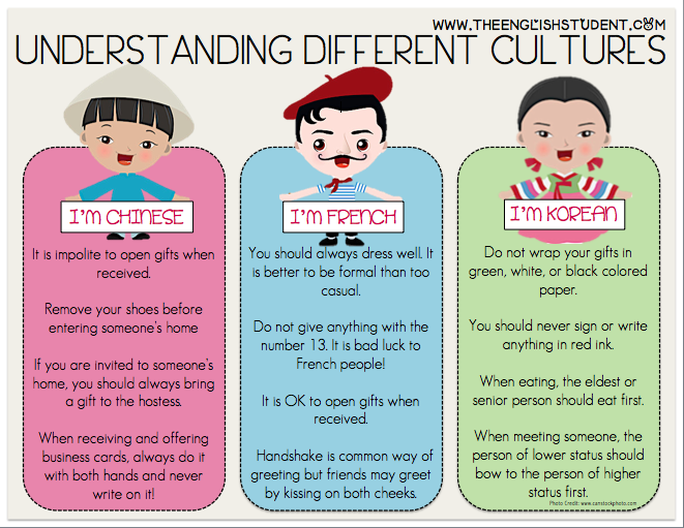
How to deal with Type D personality at work
Managing a Type D personality takes some finesse. You cannot let their natural pessimism and social comfort issues bring down the team. Their hard-working nature, compassion and honesty are valuable strengths. They're keen at observation and think things through, so they can be valuable at solving problems and reducing risk.
What motivates a Type D personality?
- Stability
- Benefits
- Security
- Low risk
- Routine
- Team/group opportunities
- Calm work atmosphere
What are some common words or phrases that motivate or grab the attention of the Type D personality?
- "Help others in need"
- Relaxed atmosphere
- Logical
- Rational
What are the turnoffs, dislikes, and fears of the Type D personality?
- Risks
- Pushy people
- Change (especially frequent change)
- Instability
- Disorganization
- Aggressive behavior
- Disruption in routine
- Surprises
- The unknown
- Conflict
Which jobs attract a Type D personality?
Considering the benefits they bring to your organization, the best careers for Type D personality include:
- Secure team position
- Administrator
- Financial services
- HR manager
- Social worker
- Bureaucrat
- Family doctor/nurse
- Assembly line worker
- Residential/community services
- Mechanic
- Teacher
- Counselor
- Personal assistant/secretary
- Minister
- Insurance agent
- Supervisor
- Librarian
- Security guard
- Customer service representative
Back to Top
What is a Type X personality?
Whenever two or more personality types are equal in strength within a person, that person is considered a Type X personality.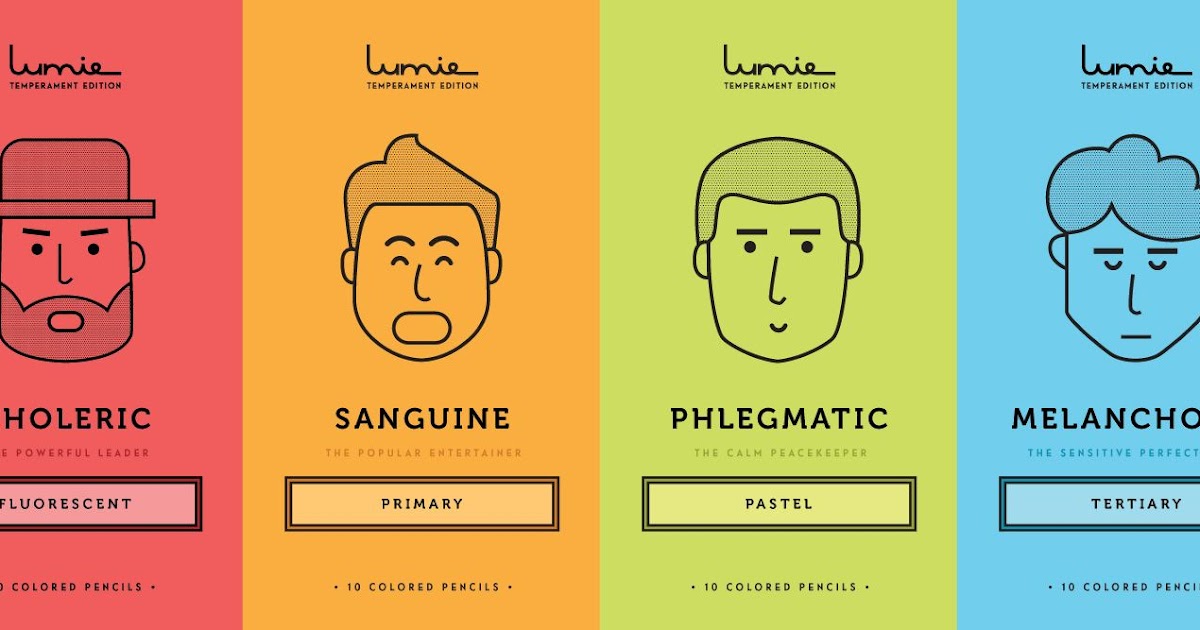 For example, if an individual's two highest-strength personality types were A and B, they might be identified as AX and BX. In the rare event that all four personality types were identical, that person would be considered simply as a Type X personality.
For example, if an individual's two highest-strength personality types were A and B, they might be identified as AX and BX. In the rare event that all four personality types were identical, that person would be considered simply as a Type X personality.
Type X personality traits
The X indicates a cross or an intersection of two or more types. It's not unusual to see the X between two of the four personality types, and it doesn't necessarily have to include the primary personality. However, when it does include the primary personality, the individual in question may have a tendency to be like one type in one situation and the other type in another. When all four temperaments are very close in strength, the individual may seem like a mixture of personalities.
This can be beneficial for many jobs, especially when it's important that the person gets along with almost everybody, such as consultative sales people. The Type X personality tends to change personality "colors" as needed based on their surroundings. Although unpredictable at times, this rare combination could be an important asset if fully utilized.
Although unpredictable at times, this rare combination could be an important asset if fully utilized.
How many personality types are there?
Depending on the model, you can have just four or five personality types or sixteen or more. Here are the most common ways of categorizing personalities.
The Big Five personality traits
This model looks at how a person thinks, feels and behaves. What is called “openness to experience” refers to curiosity and creativity. "Conscientiousness" measures affinity for organization and responsibility. Measuring "extraversion" provides insight as to sociability and being assertive. "Agreeableness" refers to getting along with people, being compassionate and showing respect. Finally, things like anxiety and depression are measured by "neuroticism".
Myer-Briggs Type Indicator
This test measures how people perceive their worlds, make decisions, and interact with others. It's not ideal as a pre-employment test because it can be easily manipulated.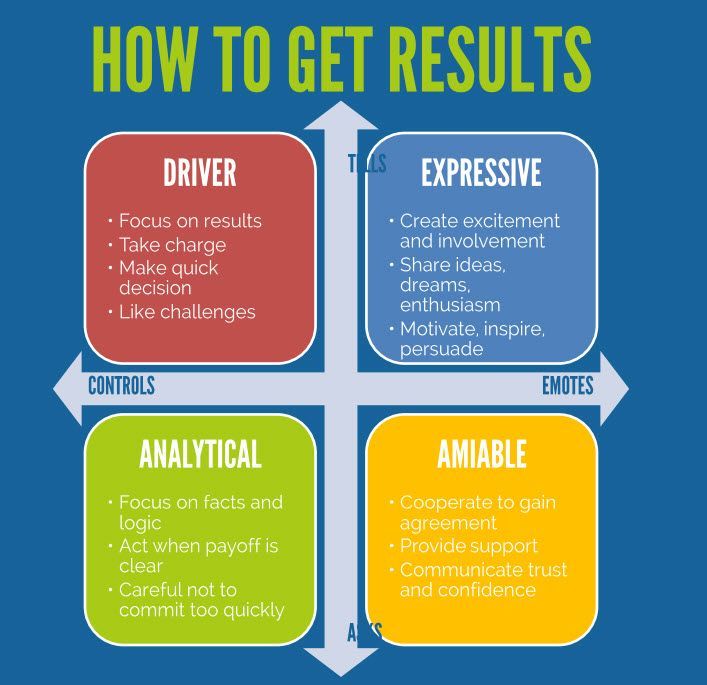 People can guess what answers might seem most desirable for a given role. It also outputs rather complex results, making it impractical for hiring and managing people.
People can guess what answers might seem most desirable for a given role. It also outputs rather complex results, making it impractical for hiring and managing people.
16 Personality Types
The Myers-Briggs® model identifies four personality trait clusters that can combine in multiple ways, leading to sixteen distinct combinations. While valid results can be fascinating, they're just not practical or reliable for managing teams. The Type A B C D personality test model that Hire Success® uses evaluates 20 different trait scales independently, providing three-dimensional insight in a simple format. It reveals the individual without forcing them into one of four boxes.
How to use the 4 basic personality types: A, B, C, and D
Expect similar descriptions printed on the Hire Success® Overview Report. Each applicant is instructed to respond to the Hire Success®Personality Profile form based on how they work. The results will indicate which of the four personality types they draw from most.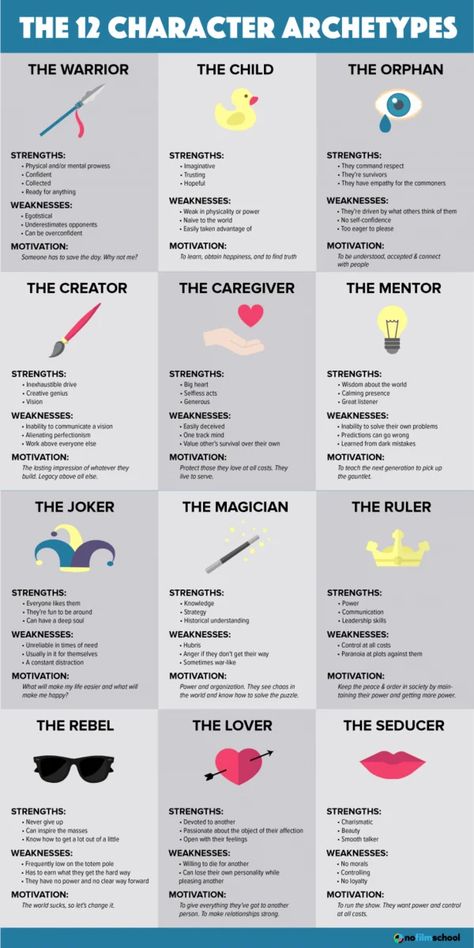 The system automatically provides a description of the primary personality at the beginning of the Overview Report. Variations of the above will be printed if the test taker is a combination of more than one personality type, or a Type X. You can compare the results against the baseline you developed to help speed up your hiring process.
The system automatically provides a description of the primary personality at the beginning of the Overview Report. Variations of the above will be printed if the test taker is a combination of more than one personality type, or a Type X. You can compare the results against the baseline you developed to help speed up your hiring process.
In the Summary Report, a bar chart is provided along with a percentage, or strength, of each of the four personality types. The higher the percentage, the more dominant that personality type. When two or more types of personality are close, or the same, in strength, the applicant may be characteristic of both types.
These Type A, B, C, and D personality descriptions are classic descriptions designed to provide you with some background information about a personality. The Hire Success® system uses these descriptions for contrast to the specific descriptions and values found in the traits section of the report. In many cases, the applicant's individual traits may differ from what you may see described in the overall personality description.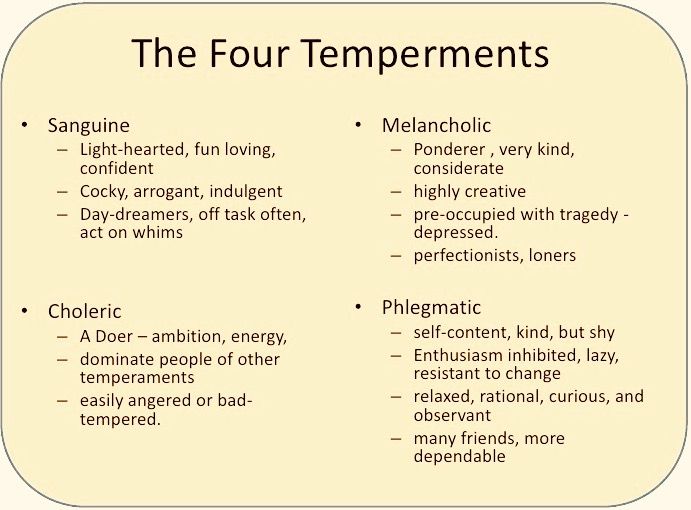
The Hire Success® system determines traits independently and doesn't base trait information on what might be expected from a particular personality type. The inclusion of these expanded traits is one of the ways the Hire Success® system differs from other systems, like Myers-Briggs®, and opens the door to highlight those differences that make the applicant a unique individual — not one squeezed into one of four boxes. If and when you see a trait differ from what might be described in the personality overview, it's not a mistake. It's most likely the trait you can expect to see from the applicant on a day-to-day basis and not just an expectation based on a traditional Type A, B, C, or D personality description.
Back to Top
Try Free Book demo
average, self-centered, role model or reserved
Mind & Body
People love taking personality tests to learn more about themselves but until recently experts believed types didn't exist.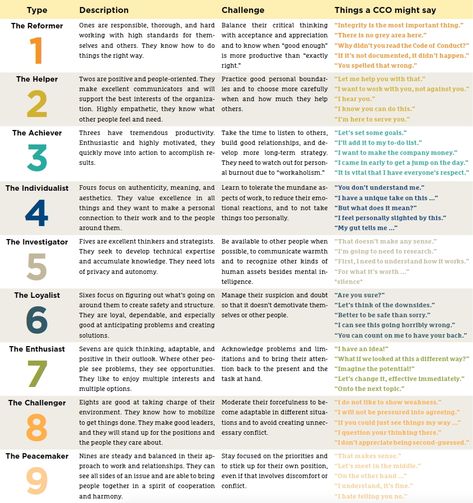 A new study discovered four types.
A new study discovered four types.
/ Source: TODAY
By Meghan Holohan
People love learning about their personalities and take tests hoping to reveal what type they are. Yet, experts have long said personality types are mythical: Personality exists along a continuum. Though a recent study is debunking that idea.
A study published in Nature Human Behaviour reveals that there are four personality types — average, reserved, role-model and self-centered — and these findings might change the thinking about personality in general.
“Whether or not these models become the definitive personality type model, it is a step forward,” Jonathan Adler, an associate professor of psychology at Olin College of Engineering in Needham, Massachusetts, who wasn’t involved in the research, told TODAY.
Different traits help to predict your personality type.
Researchers at Northwestern’s McCormick School of Engineering, in Illinois, examined data from 1. 5 million participants who answered questionnaires about the "big five" personality traits. These five traits are commonly accepted to be major indicators of personality. As they looked at the data it appeared that people clustered around four different areas, and those emerged as the different personalities.
5 million participants who answered questionnaires about the "big five" personality traits. These five traits are commonly accepted to be major indicators of personality. As they looked at the data it appeared that people clustered around four different areas, and those emerged as the different personalities.
“The findings suggest there are types,” Luis Amaral, a professor of chemical and biological engineering at Northwestern University McCormick School of Engineering and an author of the paper told TODAY. “These (types) are sort of more of an attractor for these personality traits.”
People fall into a type based on how they rate on those five traits.
People fall into one of the four types based on how they rank on the big five personality traits: openness, agreeableness, extraversion, neuroticism and contentiousness. Understanding how high or low someone ranks on each of the traits can be useful and predict things about people, such as their risk of mental illness or likelihood of divorcing.
But it's not an exact science.
“Everyone has variation on the big five,” Adler explained. “When you look at the whole picture of personality — including the traits, but at other levels as well — it still looks largely dimensional, not categorical.”
The four personality types include:
- Average: The most common type are people who are high in neuroticism and extraversion while lower in openness.
- Reserved: People in this type are not open or neurotic but they are emotionally stable. They tend to be introverted, agreeable and conscientious.
- Role-models: These people are natural leaders with low levels of neuroticism and high levels of agreeableness, extraversion, openness and conscientiousness. They listen to new ideas and are reliable.
- Self-centered: While these people score high in extraversion they rank below average openness, agreeableness and conscientiousness.
"The way for you to grow is to know about yourself," Amaral said.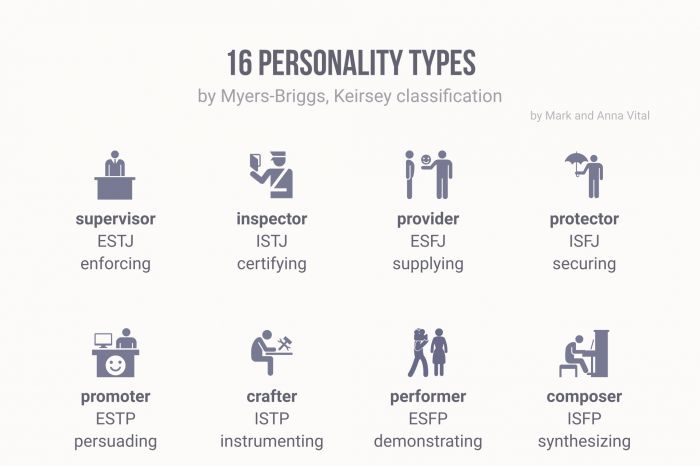
Plus, the researchers found that personality isn’t static. People evolve. Teen boys tend to be overly represented in self-centered personality while older people make up a large portion of the role models.
“Certain facets are changing,” Amaral said. “As people mature and grow, their personality also matures and grows. I think there is a positive message that people mature and they move to more desirable characteristics.”
These personality types describe healthy people. Even though it might sound bad to be neurotic, average people experience varying levels of neuroticism.
“We shouldn’t think about each one of the characteristics as the higher, the better. If you are extremely open minded, that just means you believe everything,” Amaral said.
Future research might examine people with mental illness to see if they also fall within these types or if more types emerge. People interested in learning more about their personality can do so here.
People were divided into four types of personality
American psychologists have proposed a new personality typology.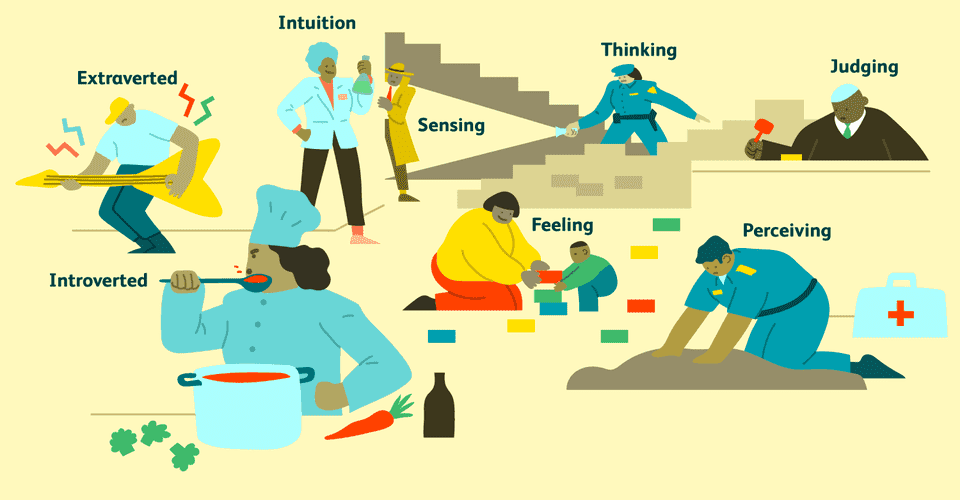 After analyzing the scores of more than 1.5 million people who took part in the Big Five Trait Survey, the researchers identified four personality types: "normal", "introverted", "egocentric" and "role model". Article published in Nature Human Behavior .
After analyzing the scores of more than 1.5 million people who took part in the Big Five Trait Survey, the researchers identified four personality types: "normal", "introverted", "egocentric" and "role model". Article published in Nature Human Behavior .
Psychologists identify five main characteristics of a person's personality (they are also called the "Big Five"): extraversion, agreeableness, conscientiousness, neuroticism and openness to experience. Individual differences in these characteristics largely predict human behavior in the social environment and its adaptation to changes in the surrounding world.
Based on these five characteristics, one can effectively study the personality typology, highlighting, for example, several basic types of a person's character. Many of the attempts made so far, however, have an important limitation due to the small sample, which makes it impossible to generalize the conclusions and apply the results to the entire population: this is inefficient, for example, from an anthropological point of view, because it poorly takes into account the influence of various cultural factors.
American psychologists at Northwestern University, led by Luís A. Nunes Amaral, decided to approach the matter more systematically. To do this, they analyzed four datasets, each of which contains data on several (from 100 to 500) thousand people. Scientists managed to collect a diverse sample, which totaled more than one and a half million men and women of different ages from different countries.
For each participant in the sample, information was available on the characteristics of the Big Five. After examining the results, the researchers clustered each characteristic by z-score from -1 to 1. It turned out that four types of personality can be distinguished based on the distribution of scores. The first type, "normal" (or "usual", average) is characterized by high rates of neuroticism and extraversion and low - openness to experience. The second type, "closed" (reserved), was distinguished by low neuroticism and openness, as well as average indicators of consciousness and goodwill.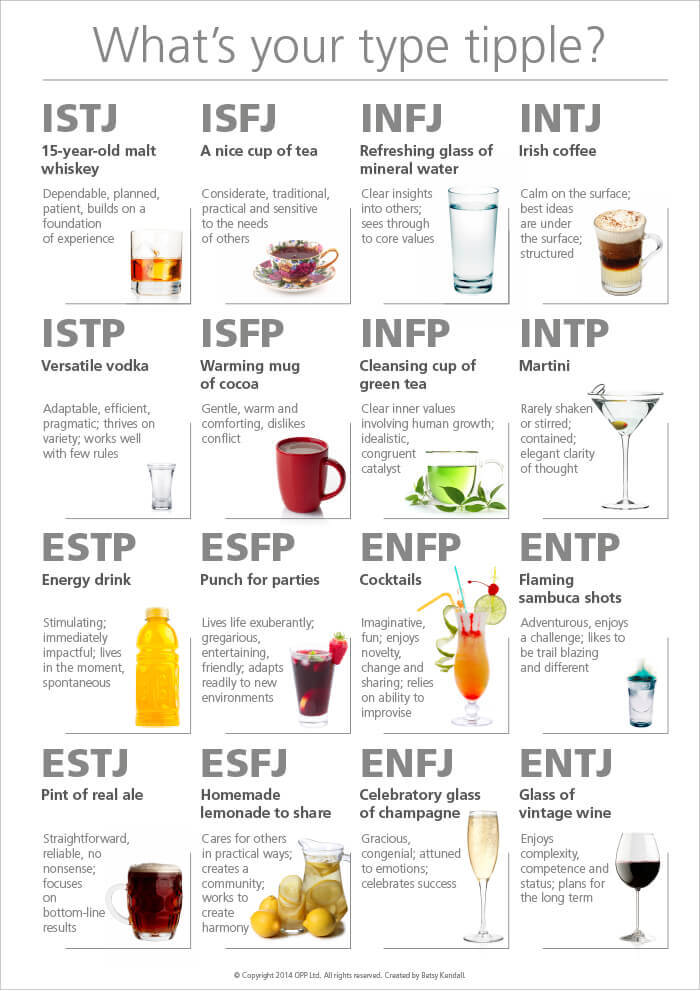 The third type was referred to as "egocentrics" (self-centred): they had increased extraversion, and all other indicators were below average. Finally, the fourth type was called "role models" (role model): they scored high on all characteristics except neuroticism.
The third type was referred to as "egocentrics" (self-centred): they had increased extraversion, and all other indicators were below average. Finally, the fourth type was called "role models" (role model): they scored high on all characteristics except neuroticism.
The scientists also examined what demographic indicators affect the fact that a person will relate to a particular type of personality. Thus, it turned out that “role models” are more often women, and the number of “egocentrics” grows with age.
The authors, however, note that their study, although it has relatively high statistical power, has some limitations: for example, there are few adolescent boys in the sample. Transferring the results to the entire population, therefore, should be done with caution. In addition, the validity of the method should be checked further - on other samples that are suitable in size.
In addition, the validity of the method should be checked further - on other samples that are suitable in size.
Despite the fact that the character of a person changes with age, the personality remains stable: this is the conclusion recently made by scientists who have studied the personal characteristics of people for 50 years.
Elizaveta Ivtushok
Found a typo? Select the fragment and press Ctrl+Enter.
Personality types: main differences and their characteristics
Contents of the article . Since ancient times, scientists and philosophers have been interested in the topic of personality classification, many theories have been developed, some of which have become part of modern psychology. In this article, we will briefly analyze the psychological types that the Soviet scientist A.E. Lichko developed while observing adolescents. It is in adolescence that individual character traits and psychological characteristics are quite strongly manifested, which are smoothed out during growing up, but can manifest themselves at a moment of crisis.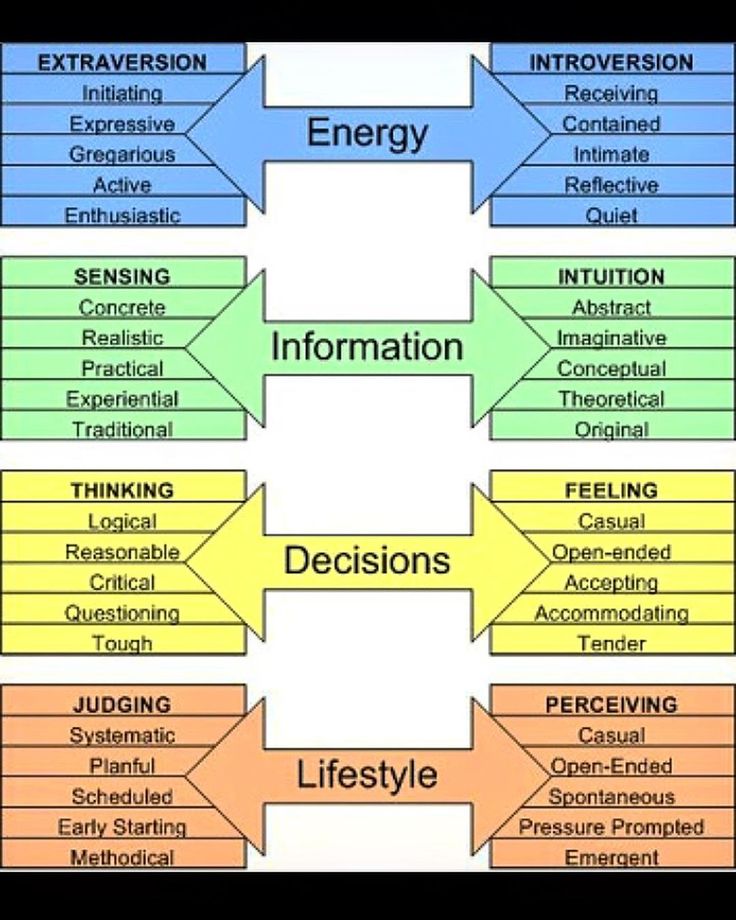 Even more types of personality classifications can be found in the free online course "Typology of Personality" on the platform "Russia - a country of opportunities".
Even more types of personality classifications can be found in the free online course "Typology of Personality" on the platform "Russia - a country of opportunities".
Asthenoneurotic type
People with a weak nervous system who are characterized by low stamina, irritability and overwork. They get tired more from psychological stress than from physical exertion. When working for a long time, they need frequent breaks, in general they like to work at their own pace. Such people are hard to switch from one activity to another, it is better not to distract them from the process once again. Any unforeseen situations cause them irritability and anxiety. But these people are very careful and disciplined, they can spend hours doing monotonous work that does not require speed.
Unstable type
Complex personality type, which is characterized by irresponsibility, idleness and addiction, for example, from alcohol, drugs, games. Such people strive for pleasure, they want to constantly relax and have fun.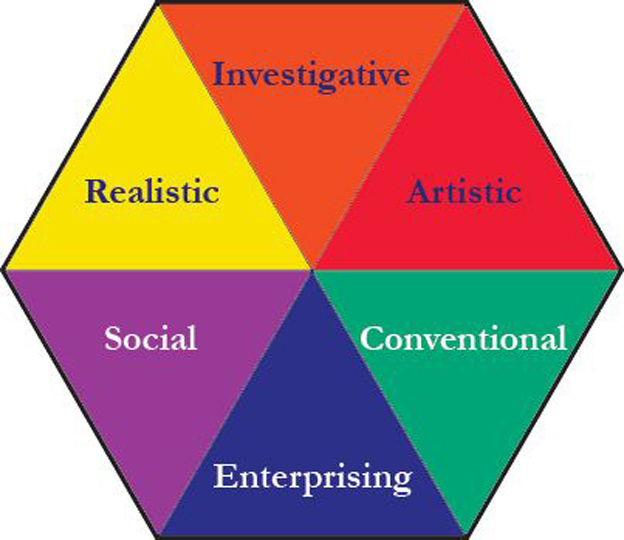 They often have problems with work, they do not want to study and grow professionally. This type of personality can be called a real hedonist who sees entertainment and enjoyment as the main goal of his life. The positive features include openness and sociability.
They often have problems with work, they do not want to study and grow professionally. This type of personality can be called a real hedonist who sees entertainment and enjoyment as the main goal of his life. The positive features include openness and sociability.
Conformal type
People who strive to live like everyone else and do not want to stand out from the crowd once again. The opinion of others is very important to them, they try to earn the praise and approval of others. Basically, the way of life of such people directly depends on the society in which they live. If there are religious people around them, then the conformist will be a believer to the point of fanaticism. It is also difficult for them to change something in their lives, it is difficult to pull them out of their comfort zone. Positive features include low conflict, friendliness, devotion and diligence.
Labile type
Empathic people who can feel the mood and feelings of others well.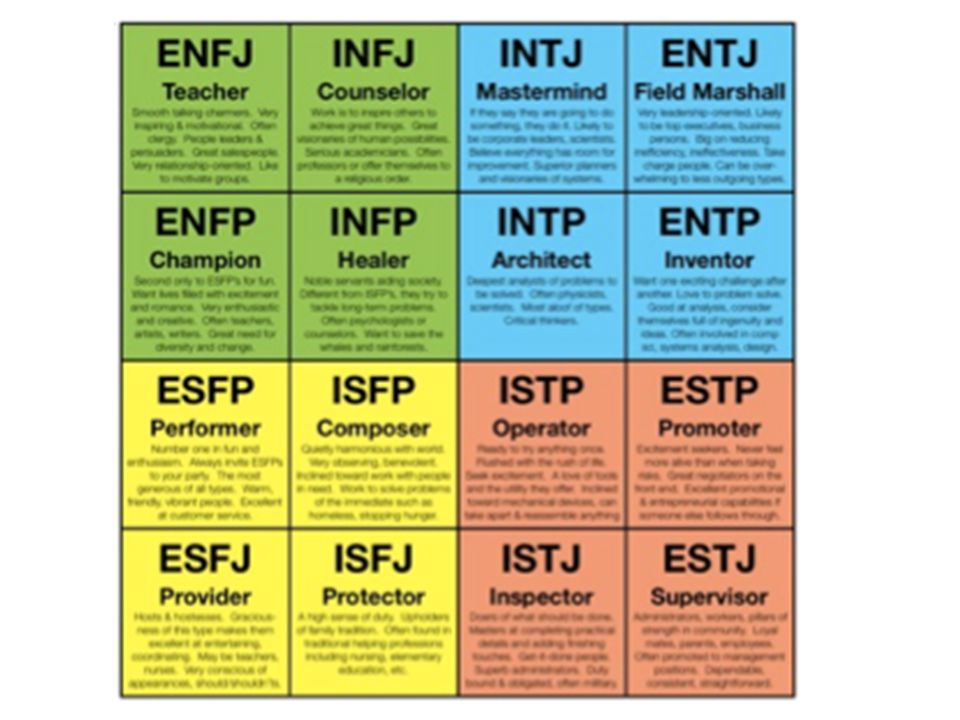 They often make outstanding psychologists and social workers. They are open and always ready to help and support with a kind word. But this type is very sensitive and touchy, does not tolerate criticism in his address, cannot stand loneliness and changes in life.
They often make outstanding psychologists and social workers. They are open and always ready to help and support with a kind word. But this type is very sensitive and touchy, does not tolerate criticism in his address, cannot stand loneliness and changes in life.
Cycloid type
People who are prone to sudden mood swings experience strong emotions - either they are overly happy, or they feel sad on the verge of depression. They cope with internal experiences for a long time, they are distinguished by excitability and irritability, sometimes aggressiveness. The positive traits include sociability and friendliness.
Sensitive
People with excessive impressionability, vulnerability and openness. They can get excited about simple things that most people don't notice. They also keep pleasant and unpleasant memories for many years, which flash in memory as if in reality. This type of personality is difficult to tolerate public criticism, is very afraid of being ridiculed.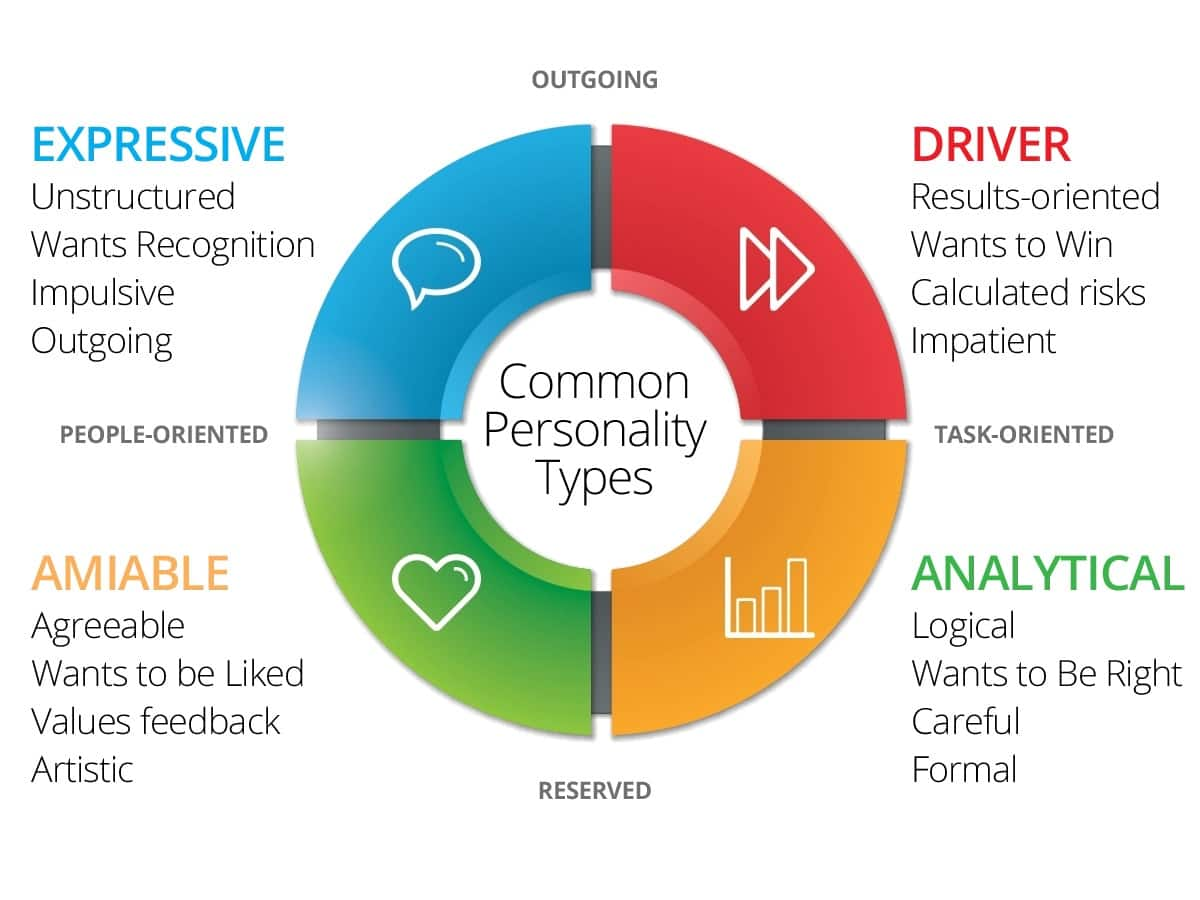 Positive traits include increased morality, compassion and sociability.
Positive traits include increased morality, compassion and sociability.
Psychasthenic type
People who are prone to introspection and reflection like to delve into themselves and criticize for shortcomings. They have an excellent memory, so they remember their mistakes well and often engage in self-flagellation. Hence, they have a lack of confidence in their abilities, they take too long to make decisions, doubt and are afraid to stumble again. The positive features include loyalty and reliability, they will never betray loved ones and will always stand up for their own.
Schizoid type
Closed and unsociable people who do not know how or do not want to build close relationships with others. But they do a great job of maintaining business relationships. They have a rich inner world, into which they prefer not to let anyone in. Many people have high intelligence and out-of-the-box thinking. But they practically do not know how to recognize other people's emotions.